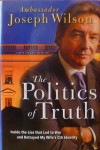What Were Editors & Execs at Dutton & Penguin Thinking?/Part III
A few new developments with No Easy Day, the book on the Bin Laden raid by the ex-Navy Seal, whose pseudonymous cover of Mark Owen was blown by FOX News in the early days of this controversy:
- Owen will have his first, and maybe only, broadcast interview tonight, on 60 Minutes. According to the book’s publicist at Dutton “security concerns” will make it impossible for him to do more media, at least for now. (Though his real name is being used in most media, I will not name him on this blog.) Update: I watched the 60M interview and will write about it more length later on.
- The NY Daily News reports that the Navy Seal foundation to which Mark Owen has claimed he’ll donate proceeds from his book has announced they will refuse any money from him.
- The Pentagon pushed back against what seemed to me a ludicrous claim made by Owen’s attorney Robert Luskin, that the non-disclosure agreement (NDA) Owen signed with the Navy didn’t require him to have the manuscript vetted by the government, and that the NDA only “invited” him to do so. Reuters’ Mark Hosenball reports that a Pentagon spokesman told reporters the former Navy SEAL’s actions appear “to potentially violate his obligation not to disclose ‘the contents of such preparation to any person not authorized to have access to SCI (Sensitive Compartmented Information) until I have received written authorization from the Department or Agency that last authorized my access to SCI that such disclosure was permitted.'”
Hosenball adds that the spokesman said this was a passage from “a standard Pentagon secrecy agreement which . . . was ‘identical’ to one [the author] had signed.” The spokesman pointed out “a paragraph in the secrecy agreement in which the signer acknowledges that the purpose of a pre-publication review was ‘to give the United States a reasonable opportunity to determine’ if any manuscript contained any sensitive classified information.” He highlighted a third section paragraph “which said that if the person signing the agreement was “uncertain about the classification status of information” they were “required to confirm from an authorized official that the information is unclassified before disclos[ing] it.”
In earlier posts, here (1) and here (2), I had written that editors and executives at Dutton and Penguin messed up badly by seemingly just accepting the opinion of an attorney hired by the author, who said that the manuscript did not disclose classified information. This shortcut meant the book went to press without complete vetting.
Even though No Easy Day has been on sale since September 4, the Pentagon has since ruled that the author’s in “material breach and violation of the non-disclosure agreements,” and that his book contains “classified” information, and they may still take legal action against the author. They had earlier warned him about possible seizure of “royalties, remunerations, and emoluments.” Penguin could also suffer a loss to its reputation or even financially, having brought out a book deemed harmful to national security. As I wrote in my first post on this situation, Penguin already had plenty of trouble with the Department of Justice, in the ebook agency pricing lawsuit, they could’ve done without this additional legal problem.
Reuters concludes its report: “Dutton said the review by the ‘former special operations attorney’ concluded the contents of No Easy Day were ‘without risk to national security.’ The publisher has not released further details regarding who reviewed the manuscript.”
I find this statement hard to believe, and so have a handful of questions:
1) Was Dutton on such a crash production schedule that they failed to build in adequate time for government review, and so decided to wing it with the one attorney? 2) Or, were Owen’s editors inexperienced and incurious and so failed to ask him if he had signed an NDA? 3) Did they know he’d signed one, but never read it? 4) Did Owen’s reported animus toward the Navy over his discharge from the service motivate him to bypass the vetting, and leave them little time to review the book? 5) Was Dutton hopeful that the whole flap would draw the Pentagon’s condemnation and provide them with a lot of free publicity?
I will close by saying that if anyone reading this blog believes they know what happened in the editing of Owen’s manuscript–why vetting was limited to the lone attorney–or has other information relevant to this story, I would like to hear from you through the contact button at the top of this website.
//end//

